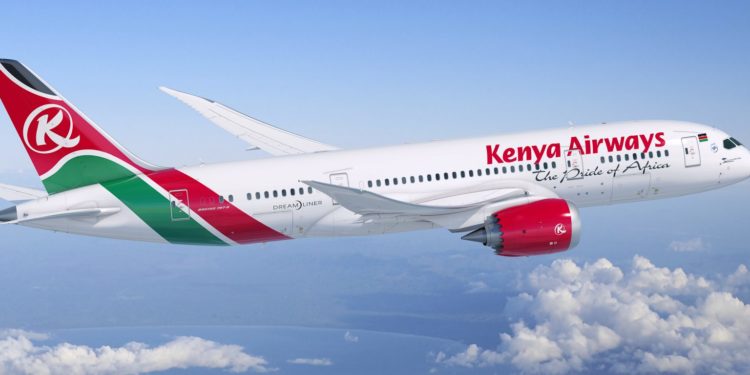Kenya Airways (KQ) has gone through costly reorganizations in recent years, which have created serious cash flow issues. This has resulted in significant overdue obligations. However, over time, some of the structures have produced fruit.
The company’s overall revenue in the first six months of 2022 was Ksh48.1 billion, a 76% increase over the same period the previous year. This rise is mostly attributable to a notable increase in passenger revenue (up 109%) and cargo revenue (up 18%).
Pent-up demand and the lifting of travel restrictions boosted operations throughout the first half of 2022, resulting in a robust and sustained recovery in trading performance compared to the same period the previous year.
KQ transported 1.61 million people in total over the time frame, an increase of 85% over the 0.87 million passengers carried during the same period the previous year. However, this is still 33% below the pre-pandemic level for 2019. When compared to the same period in 2021, cargo tonnage climbed by 39%, illustrating the consistently exceptional expansion of air freight services.
Read: Kenya Airways Cuts Back On Losses To Ksh9.9B
The government’s strategic investment of Ksh36.6 billion is intended to increase state funding for the airline to Ksh56.6 billion in less than a year. As a long-term fix to its financial problems, the state, which owns 48.9% of KQ, earlier this year abandoned plans to nationalize the company.
The airline contracted US-based Seabury Consulting earlier this year to advise it on a financial restructuring and revitalization plan. In a budget document that was submitted to Parliament in April, the Treasury stated that it would provide KQ with a further Ksh36.6 billion bailout in 2022/2023 to support the national carrier as it bounces back from the COVID-19 collapse.
The Treasury said in a plan provided to the International Monetary Fund (IMF) last year that it was assisting the airline in finding qualified consultants to develop a workable turnaround strategy.
According to CEO Allan Kilavuka, the business is recovering. Their main goal is to provide excellent and dependable services to their clients by strengthening their operational resilience through innovation and diversity.
“Because of the changes we have made to the airline during the pandemic, we were able to reemerge with renewed vigour, supported by a product, network, and service that clients valued,” said Kivaluka.
Even though income has increased noticeably, the business continues to lose money. The business posted a loss of Ksh9.861 billion ($82.35 million) for the first half of this year. This was a 15% improvement over the airline’s total loss of Ksh11.542 billion ($96.29 million) for the first half of the previous year. By 2024, the airline hopes to become profitable. The airline is attempting to reduce operating expenses to achieve this.
Email your news TIPS to editor@thesharpdaily.com














